Editor’s Note: Danya Hakeem is director of innovation, agriculture & circular economy at Elemental Excelerator. Here she writes about their latest cohort.
With recent reports from the Intergovernmental Panel on Climate Change and others illustrating that it will be impossible to keep global temperatures at safe levels unless there is also a transformation in the way the world produces food and manages land, the time to address systemic problems across the food value chain is now.
Fortunately, from equipment and delivery methods to land and waste management, the global agriculture and food industries are innovating like never before. Emerging technologies now require funding and implementation to reach the scale necessary to create a more regenerative and climate-positive food system. That’s where Elemental Excelerator comes in.
Each year, we fund 15-20 startups up to $1 million to build a better way forward for our energy, water, mobility and food systems. This year, we had more ag and food-related applicants than ever before (a whopping 350% jump year over year), underscoring the increased interest in and demand for innovation in this sector.
For our 8th cohort, we selected five companies whose technologies solve some of agriculture’s greatest needs and bring along the workforce to implement their technologies for long-term use.
By including farmers and other critical ag and food-related workforces, these startups are tackling not only climate issues but also economic opportunity and quality of life issues. Our mission in supporting these companies is to improve the sustainability of global food systems by reducing emissions and waste. But just as important is our goal to bridge the divide between food producers and consumers and improve the bottom line for those dedicated to feeding a growing population while preserving the environment.
The seaweed solution to livestock methane emissions
Why do we love them?
Carbon dioxide is far from the only harmful greenhouse gas. Methane makes up 10% of total emissions, and one of the primary sources of methane emissions is, believe it or not, cow burps. In fact, the digestive processes of livestock including cows and buffalo are responsible for approximately 4% of global GHG emissions. But tackling that problem doesn’t mean we need to eliminate hamburgers from our diets. Dietary supplements like the one created by Blue Ocean Barns, which uses a seaweed-based additive, can help them burp less. How much less? Supplementing the feed of one dairy cow provides the climate benefit equivalent to converting two or more cars from gas to electric.
Farm Link Hawaii
Farms at your fingertips
Why do we love them?
In a state that imports 90% of its food, helping local farmers succeed is critical to revitalizing Hawaii’s agricultural ecosystem. Farm Link’s online marketplace and supply chain infrastructure connects local growers and producers with restaurants and retailers, and helps ensure the food meets the quantity, quality, and uniformity standards required to create a reliable and sustainable farm-to-fork system. By helping local farmers create thriving businesses, Farm Link can shrink food imports (and in turn reduce greenhouse gas emissions from transport and shipping), incentivize regenerative farming practices that sequester carbon, and reduce the likelihood that agricultural land will be lost to development.
Feed more. Waste less.
Why do we love them?
For many companies, becoming “zero waste” is a difficult endeavor. In many circumstances, that “waste” is really just healthy, delicious food that gets thrown away instead of eaten. But what if instead of ending up in landfills, that food could get easily rerouted to nonprofits or other organizations that don’t have sufficient access to fresh food at an affordable cost? Goodr’s team set out to tackle this challenge because they have firsthand experience with hunger. Goodr provides all the supplies, logistics, and people necessary to connect excess food to those who need it, and is specifically focused on fighting hunger in low- to moderate-income communities. And by reducing the amount of food waste in landfills, Goodr also helps reduce harmful methane emissions that are contributing to climate change.
Why do we love them?
Leap works with device manufacturers such as Nest Thermostats to participate in dynamic demand response markets, which is itself a great path to scale. Together, we will work on demonstrating the feasibility of expanding to energy assets in rural and agricultural areas in California, turning agricultural farm equipment and distributed energy resources like solar+storage systems into active energy market participants. This will advance three of the most important priorities we look for in any project: reliably saving customers money, helping reduce carbon emissions, and increasing resiliency.
Agroforestry simplified
Why do we love them?
To have any hope of mitigating climate change, we will need to fundamentally transform our relationship with the land. Agroforestry — integrating tree growth into existing agricultural systems — can play a big role in that. Propagate helps farmers design symbiotic tree and crop systems, promotes more regenerative agricultural practices, and allows for higher productivity and yields. The company’s software simplifies and de-risks the entire process, helping farmers assess the return on investment, labor, and costs associated with agroforestry so that these farmers can be more profitable on the land they already cultivate.
I’m thrilled to welcome our five newest ag sector cohort companies to the Elemental portfolio, and look forward to working with them to bring change to communities and the planet, one fork or field at a time!
Image: from left – Raine Armstrong (Farm Link Hawaii Market Manager), Rob Barreca (Farm Link Hawaii CEO & Founder), Ethan Steinberg (Propagate Managing Partner & Co-Founder, Business Development), Terrence Smalls (Goodr VP of Business Development), Jasmine Crowe (Goodr CEO & Founder), Mike Bracco (Blue Ocean Barns CFO & Co-Founder), Joan Salwen (Blue Ocean Barns CEO & Co-Founder), Andrew Hoffman (Leap Chief Development Officer).

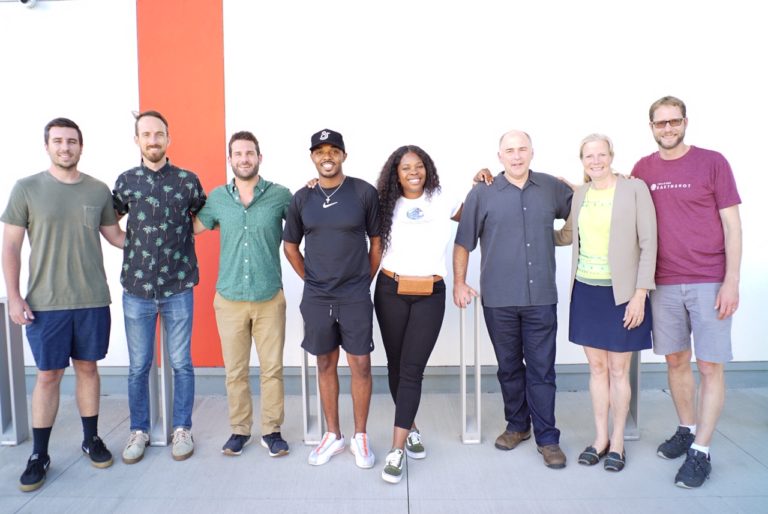
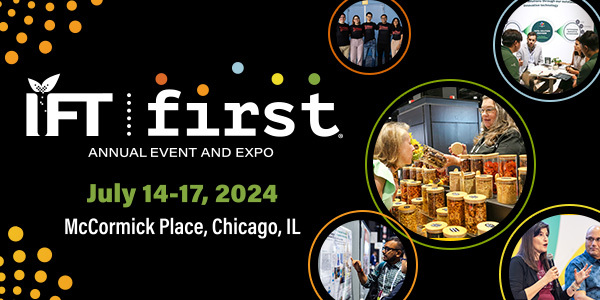
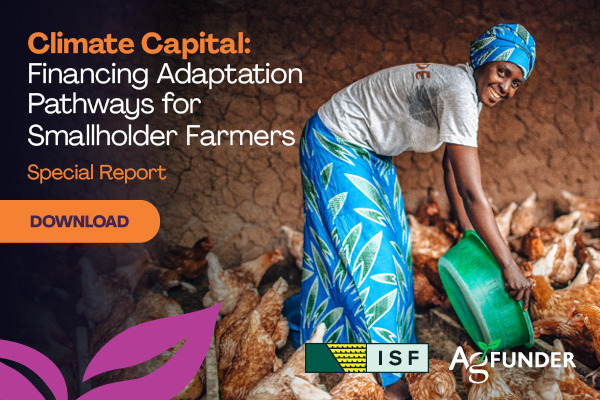
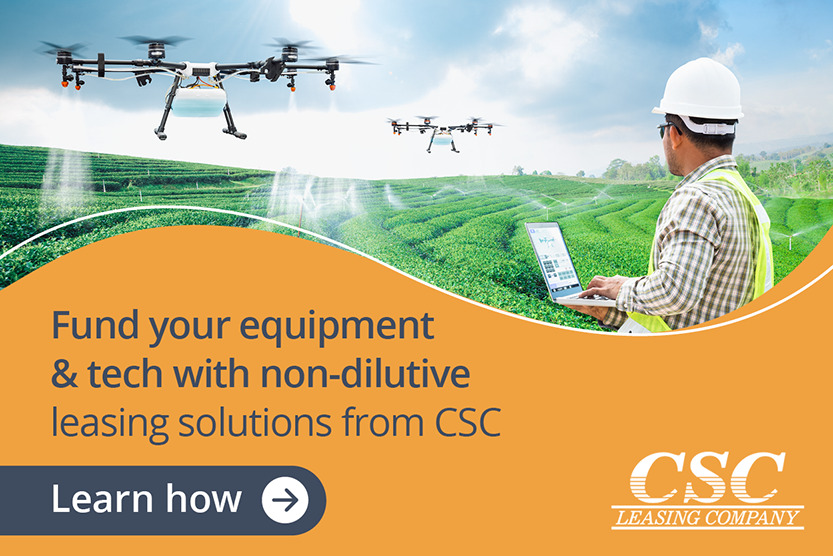


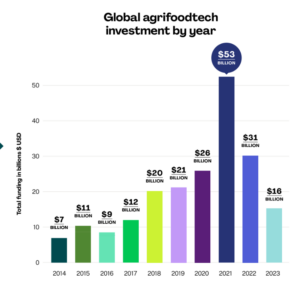
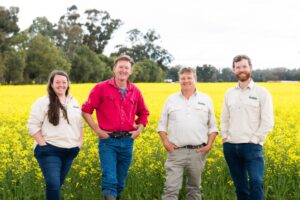


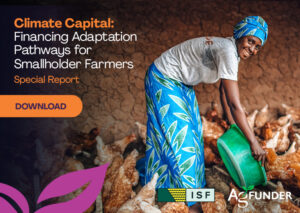

Sponsored
International Fresh Produce Association launches year 3 of its produce accelerator